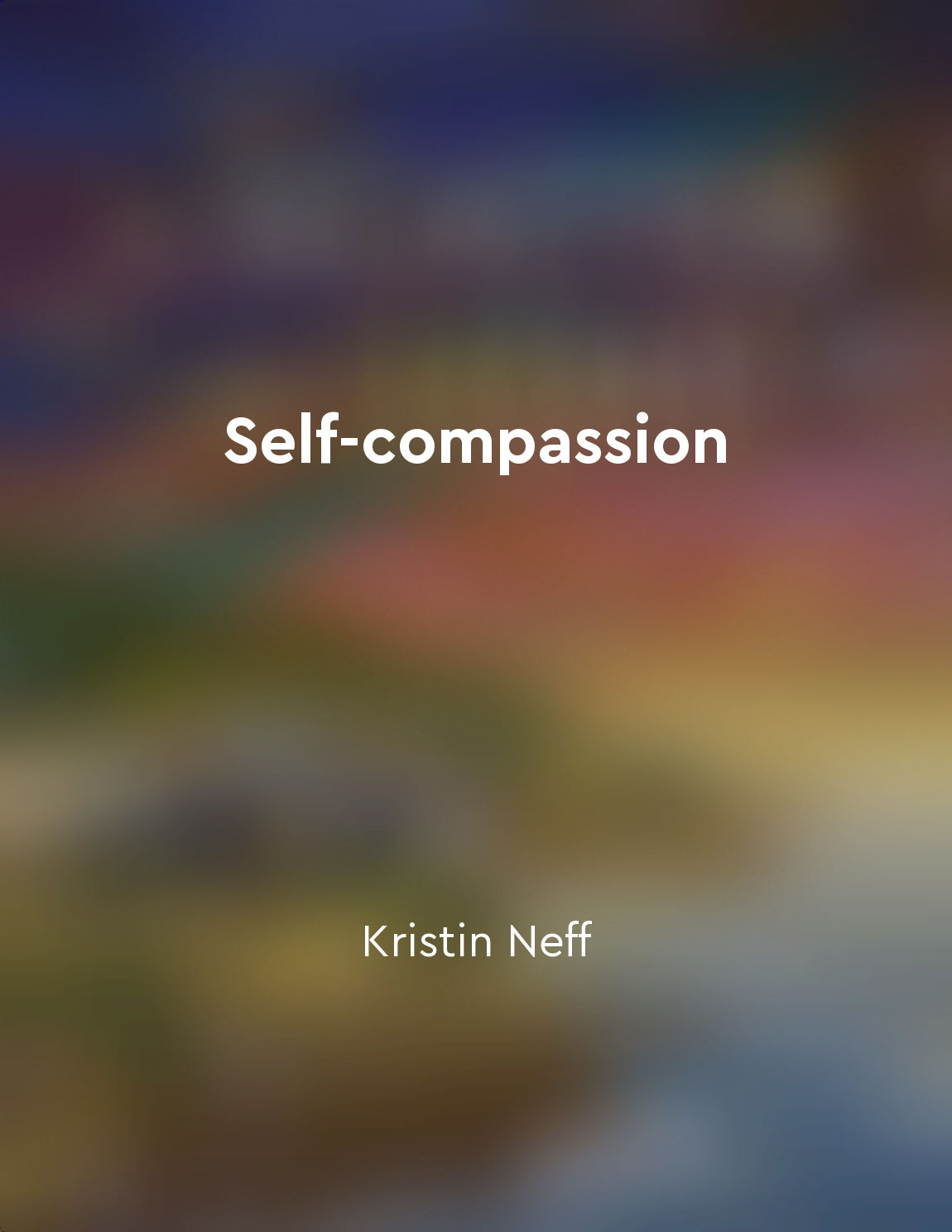It is about acknowledging one's own humanity and imperfections from "summary" of Self-compassion by Kristin Neff
Acknowledging one's own humanity and imperfections is a fundamental aspect of self-compassion. It is the recognition that as human beings, we are inherently flawed and make mistakes. This acknowledgment allows us to approach ourselves with kindness and understanding, rather than harsh judgment and criticism. When we acknowledge our humanity, we are able to cultivate a sense of common humanity with others. We realize that we are not alone in our struggles and that making mistakes is a natural part of the human experience. This understanding fosters empathy and connection with others, as we recognize that everyone is imperfect in their own way. Furthermore, acknowledging our imperfections allows us to practice self-compassion in times of difficulty or suffering. Instead of berating ourselves for our mistakes, we can offer ourselves the same kindness and support that we would offer to a friend in need. This self-compassionate response can help us navigate challenges with greater resilience and emotional well-being. By embracing our humanity and imperfections, we can cultivate a deeper sense of self-acceptance and self-love. We can let go of unrealistic standards of perfection and recognize that our worth is not contingent on our successes or failures. Through self-compassion, we can learn to treat ourselves with the same care and compassion that we would offer to someone we cherish.- Acknowledging one's own humanity and imperfections is a cornerstone of self-compassion. It is the foundation upon which we can build a more nurturing and supportive relationship with ourselves. By embracing our flaws and shortcomings, we can cultivate a greater sense of empathy, connection, and acceptance – both towards ourselves and others.


